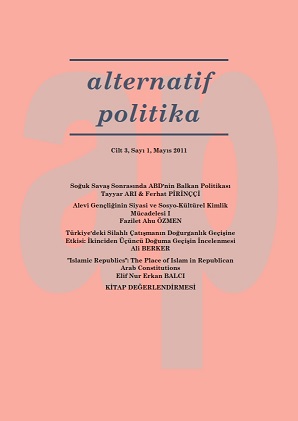Soğuk Savaş Sonrasında ABD'nin Balkan Politikası
Balkans Policy of the U.S. after the Cold War
Author(s): Tayyar Ari, Ferhat PirinççiSubject(s): Diplomatic history, Political history, International relations/trade, Developing nations, Peace and Conflict Studies
Published by: Rasim Özgür DÖNMEZ
Keywords: American Foreign Policy; Balkans Policy of the U.S.; Bosnian Crisis; Kosova Crisis; Macedonia Crisis;
Summary/Abstract: The power vacuum which was emanated with the demise of Yugoslavia Federal Republic has caused conflicts and created instability in the post-Cold War era. The instabilities that arose have had the potential to affect the global interests of the U.S. directly and indirectly. That’s why the U.S. took the initiative and some interventions were made in order to provide stability in the region. This study analyses the Balkans policy of the U.S. in the post-Cold War era by focusing on the Bosnian, Kosova and Macedonian crisis. The study makes predictions by examining the factors that caused the U.S. to take the initiative as well as American post-conflict engagement. In this context whether the possible tensions with the declaration of independence of Kosova and the collapse of Bosnian peace or the possibility of the rise of instability in Macedonia thought, the paper claims that the U.S. would pursue a foreign policy that protects its strategic advantage which once gained with the earlier interventions.
Journal: Alternatif Politika
- Issue Year: 3/2011
- Issue No: 1
- Page Range: 1-30
- Page Count: 30
- Language: Turkish

